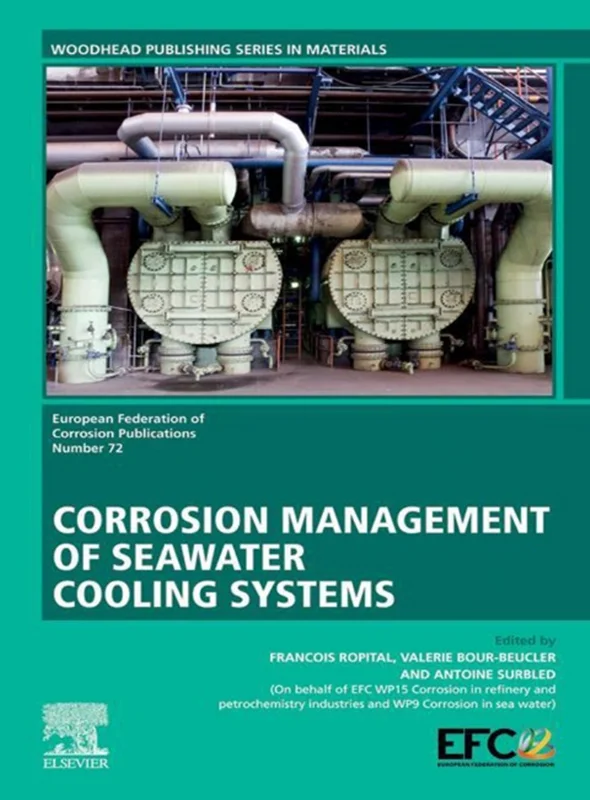Corrosion Management of Seawater Cooling Systems
Francois Ropital, Valerie Bour Beucler, Antoine Surbled, B0D7C3365C, 0443152357, 0443152365, 9780443152351, 978-0443152351, 978-0-443-15235-1, 978-0-443-15236-8, 9780443152368, 978-0443152368
English | 2024 | PDF | 14 MB | 240 Pages
Corrosion Management of Seawater Cooling Systems, Volume 71 provides an overview on main seawater heat exchanger systems, different forms of corrosion, biocide treatments, corrosion, scale inhibitors, materials used, coatings and cathodic protection, maintenance, and monitoring and control. The book will be a valuable reference resource for academics, technicians and engineers who are interested in the corrosion management of seawater cooling systems. The evolution of practices in terms of sustainability, materials choice, treatment selection and changes to regulations have demonstrated the need to establish this new guide on recommended best practices that support corrosion management and the development of seawater heat exchangers.
Seawater is considered an attractive resource for utilities in many industries such as power plants, refineries and chemical plants. Seawater cooling systems are used in heat exchangers, in once-through cooling water systems, and for recirculating cooling water systems. The metallurgy and materials used in these facilities need to be compatible with seawater and allow good corrosion control. As seawater composition and suspended solids can cause corrosion, scaling, fouling, microbiological growth and macrofouling problems, this book is a necessary addition to the conversation.
- Covers key technological developments in corrosion management of seawater cooling systems
- Includes coverage of seawater heat exchangers<
- Provides information on many different forms of corrosion
- Presents tactics for the selection of materials, corrosion protections (inhibitors, coatings, cathodic protection)
- Discusses maintenance, control, monitoring and inspection

